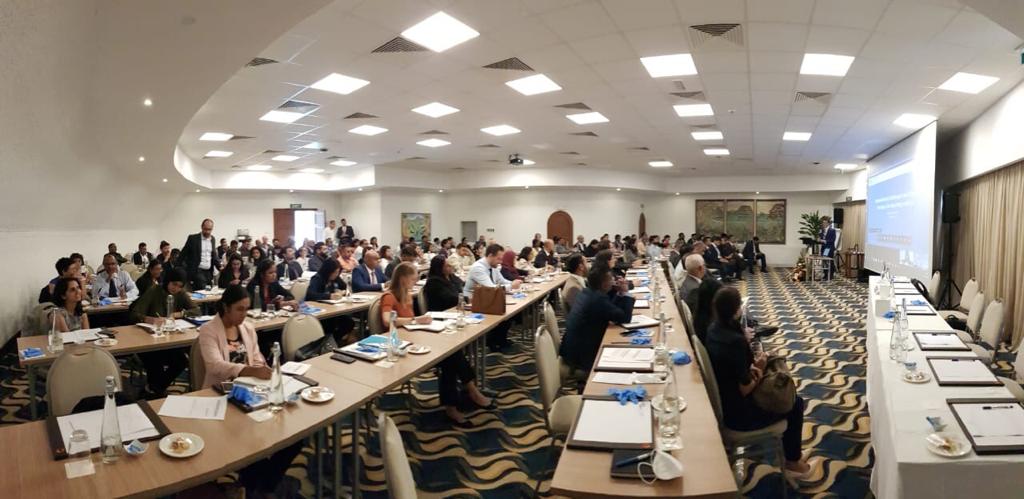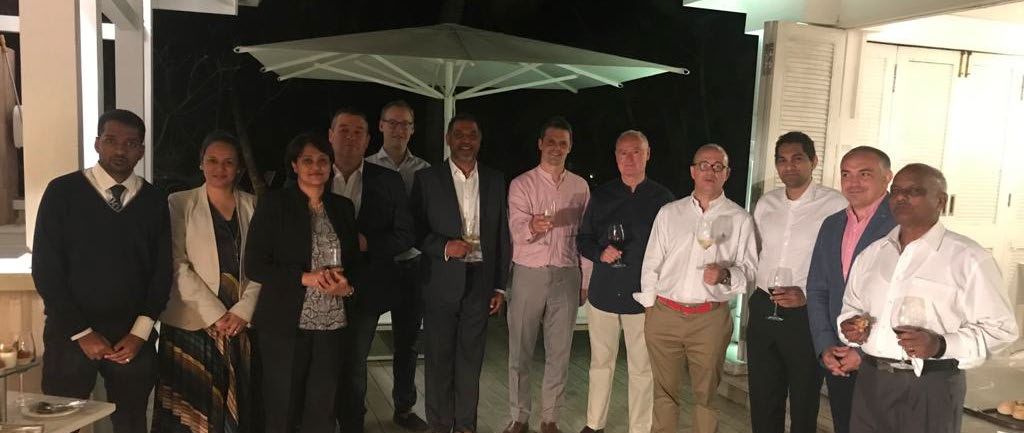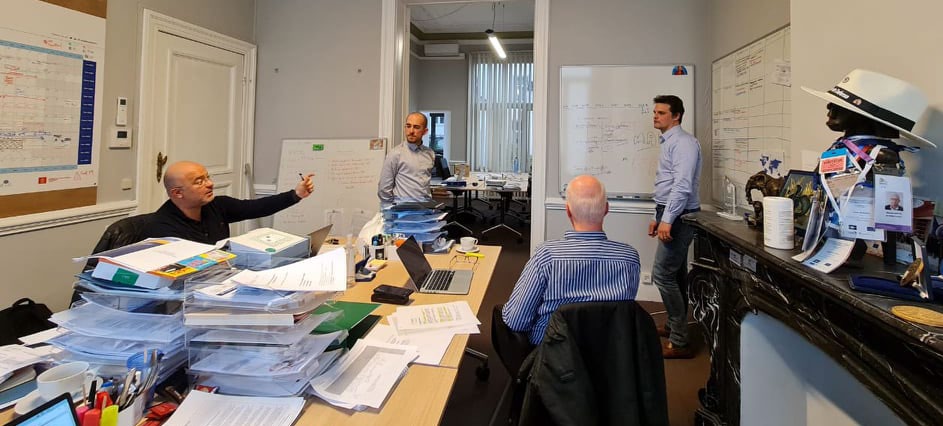Set up in 2017 with funding from the European Union’s IcSCP, the EU Global Facility on Anti Money Laundering and Countering the Financing of Terrorism (AML/CFT) has overcome the COVID-19 upheaval with a prompt, state of the art response.
Throughout 2020, the global facility conducted more than 38 training, reaching an outstanding number of 842 actors. It hereby establishes itself as a trailblazing entity in the field of anti-money laundering and counter terrorist financing.
Launched as the European Commission’s operational tool to provide demand driven support to third countries based on the deficiencies in their AML/CFT regimes, the EU GF-AML/CFT is one of the most unique technical assistance entities in the field, both in its thematic scope and geographic range.
COVID-19: a state of the art response
In March 2020, the EU GF-AML/CFT was on the verge of scaling up its technical assistance activities to various parts of the world when the COVID-19 pandemic hit. Forced to cancel all of its scheduled on-site visits, the facility swiftly re-engineered its work approach, developing a robust e-training catalogue composed of more than 110 modules over the course of the first lockdown.
The unique e-catalogue, which covers all aspects of the AML/CFT prevention, investigation and penal chain, as well issues relevant to civil society organisations and media, was launched shortly after, on one of the first online training platform active during the pandemic.
Nick Shah, a senior expert in law enforcement and the judiciary working as a mentor and training coordinator with the facility, remembers how “unsure” of how impactive this form of training would be at first.
As the world struggled to cope with the disruption caused by the pandemic, the global facility managed to turn technical difficulties into tangible achievements, integrating its distance training component as a core aspect of its work. The e-catalogue, initially produced in response to the COVID-19 crisis, will continue to be implemented when on-site missions resume.
In parallel to the e-training, the project also sent two of its experts to Mauritius for a technical assistance mission in February 2020, becoming one of the first EU-funded project to resume its on-site activities during COVID-19.
The pilot mission, which came as a result of a three-phased scoping assignment carried out between September 2019 and February 2020, sought to support the Mauritian authorities to strengthen their AML/CFT regime.2 It encompassed mentoring support to the police force of Mauritius, followed by support to enhance the Gambling Regulator’s AML/CFT capacities, as well as activities to increase authorities’ transparency and beneficial ownership of legal persons and legal arrangements.
The project’s pro-active response to the pandemic was officially acknowledged by the European Commission, which increased the facility’s total budget from 16 150 000 to 20 150 000 euros, prolonging its duration until June 2023 (instead of the initial end date of September 2021).

Connecting the dots
Operating on the motto “a chain is only as strong as its weakest component”, the GF’s work is structured around three key pillars: regulation, judiciary and the civil society, and law enforcement.
For Arnaud Stien, the facility’s key expert on regulation, “tackling the regulation aspect of AML/CFT regimes is complex but crucial. Crucial because it covers so many actors across the financial intelligence chain who must be able to detect and identify suspicious activities by playing this role of sentinel and catalyst of information.” With more than 15 years of experience in AML/CFT as a senior Banking Supervisor, Head of AML/CFT unit for a financial institution, and Payments, Arnaud Stien acknowledges the importance of connecting “a state of the art detection to ensure effective investigation”.
“This process is complex because of the diversity of the actors: reporting entities, supervisory/regulatory authorities and financial intelligence units. Our role as a technical assistance facility is to unite all these actors to speak a common language and cooperate more efficiently. And we do that through a key common vector: the AMLCFT risk analysis methodology.”
The importance of cooperation is also emphasized by former Ambassador Mamuka Jgenti, a senior expert with over 25 years of experience in EU institutions, legislation in the criminal field and AML/CFT, who acts as the GF’s key expert on judiciary and the civil society.
On the role of the judiciary in the AML/CFT system, he stresses the importance of cultivating a constant dialogue with and between all actors in the penal chain. “A chain is efficient only when combatting ML and TF culminates in the court of law. The AML/CFT measures can only be regarded as successful with efficient prosecution and conviction of criminals by the judiciary.”
A pioneer in the field
The EU GF-AML/CFT has also garnered widespread attention for its pioneering approach to the AML/CFT topic, putting some under-researched areas back into the spotlight.
The facility’s thematic approach to AML/CFT law enforcement includes innovative training on blood antiquities, conflict looting, canine cash detection, pharmaceutical fraud and prison financial intelligence, among others.
“Terrorists and organised crime groups adapt incredibly quickly to law enforcement techniques, so we have to constantly review what the current ML/TF patterns are. This is where our topical areas of expertise come into play,” Tim Hanley says. “Cash is king for terrorists. And we want to support regimes that are able to trace this cash so these groups cannot operate so easily.”
As of December 2020, the facility had produced more than nine concept papers and regulatory recommendations on specialised topics ranging from crypto-currency, financial abuse in the NPO sector, micro-finance and judiciary AML/CFT.
A groundbreaking approach
Between March 2020 and December 2020, the GF delivered over 38 country specific and regional training, reaching some 842 participants.
It conducted 25 outreach missions in countries as diverse as Egypt, the Philippines, France, Bahrain, Kyrgystan, Turkey, Panama and Spain, among many others. Meanwhile, meetings with key stakeholders were also arranged in Bangladesh, Kenya, Mauritius, Zambia, Georgia, Jordan, Republic of Moldova, Bhutan, Mongolia and Jamaica.

But these impressive figures do not paint the whole picture, he insists, as the central aspect of the facility’s work is built around dialogue and continual improvement. “We are not simply trying to ‘tick boxes’. Rather, we strive to establish a sustainable, qualitative two-way street partnership with third countries’ authorities, which helps us best understand their needs, expectations and specific objectives.”

Working in close collaboration with the main AML/CFT institutions, the GF also ensures that the EU principles of subsidiarity and complementarity are translated into concrete terms. “Before intervening in a country, we consider all the technical assistance already implemented by other programmes, in order to avoid duplication and to best tailor our activities,” David Hotte notes.
Having exceeded all of its initial objectives for the year, the team is well under way to becoming a centre of excellence in the field of AML/CFT. With many more activities lined up for early 2021, the EU Global Facility has proven that flexibility and collaboration are at the heart of a successful AML/CFT equation.
The EU Global Facility on Anti-Money Laundering and Counter the Financing of Terrorism is managed by the European Commission’s Service for Foreign Policy Instruments (FPI) and implemented by Expertise France, in partnership with the Deutsche Gesellschaft für Internationale Zusammenarbeit – GIZ and Northern Ireland Cooperation Oversea – NI-CO.
This article is the sole responsibility of the EU GF-AML/CFT and does not necessarily reflect the views of the European Union.
1. Based on Directive (EU) 2015/849, Article 9, the European Commission is mandated to identify high-risk third countries having strategic deficiencies in their AML/CFT regime, following a revised methodology.
2. In May 2020, the country was officially listed by the European Commission as a high-risk third country in AML/CFT.
3. FATF Recommendation 8 aims to ensure that NPOs are not misused by terrorist organisations (i) to pose as legitimate entities (ii) to exploit legitimate entities as conduits for terrorist financing, including for the purpose of escaping asset freezing measures; (iii) to conceal/obscure the clandestine diversion of funds intended for legitimate purposes, but diverted for terrorist purposes
4. At the time of writing, only five states globally were rated as fully compliant with the Recommendation



